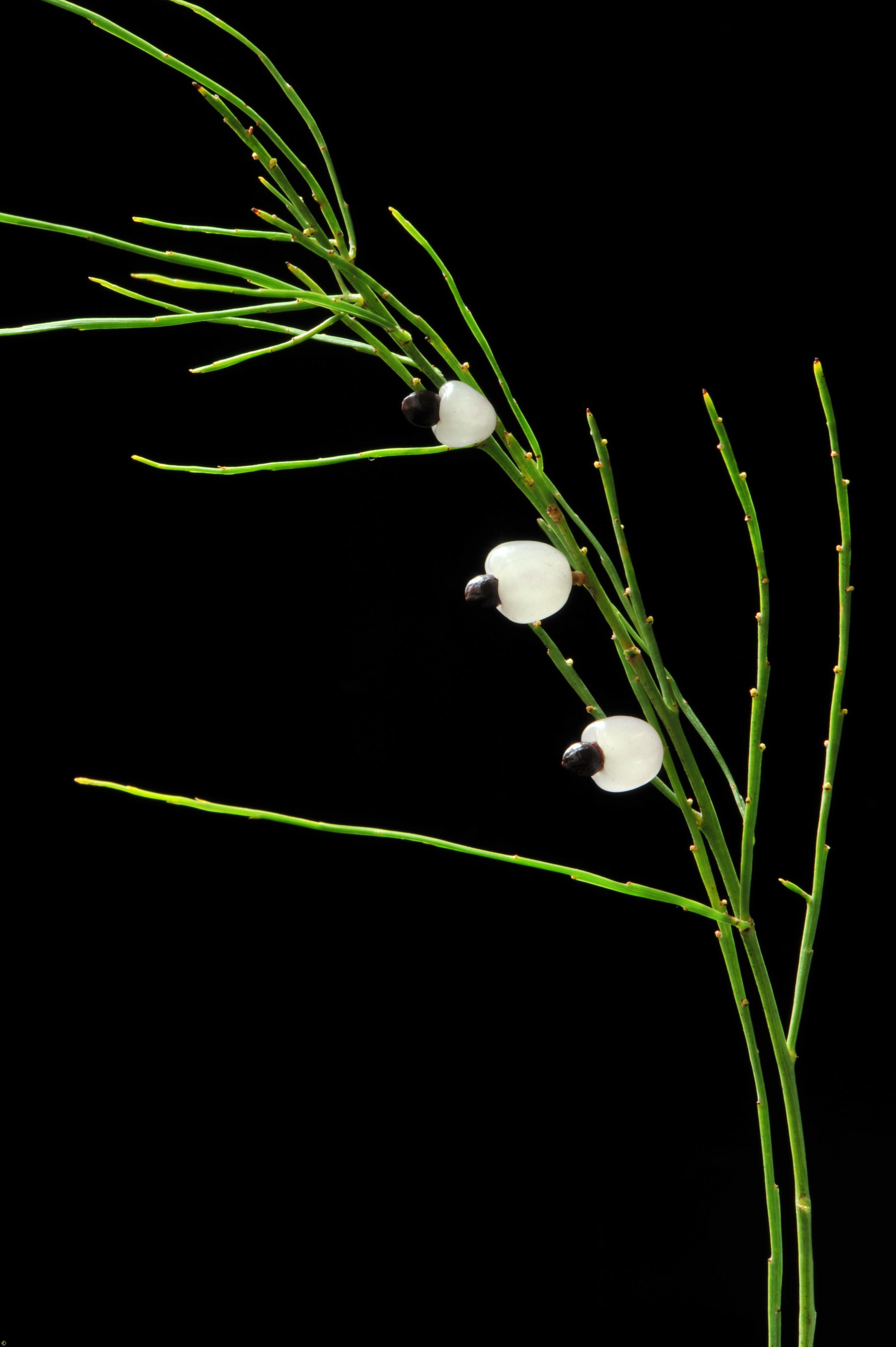Scientific Name: Exocarpos strictus
Common Name: pearly native-cherry
Family Classification (Clade): Eudicots
Family: Santalaceae
Form Description: Large, upright or spreading shrub with many vertical branches; leaves reduced to minute scales.
Height (m): 1 – 3
Flowers: Flowers small or minute, in small axillary clusters of 2-4 together.
Fruit: Nut – seed is contained in hard nuts that become green to purplish-black on maturity, attached to a succulent whitish to pale-purplish stalk.
Municipality
Plant Communities
Habitat Notes
Found on a wide variety of climatic and soil conditions, including in wet forests, on the coast, sub-alpine and inland regions. Also is widespread but occasional in dry heath.
Site Tolerance
Dry, Moist, Shady
Soil Tolerance
Clay, Loam, Nutrient-poor, Sandy, Well-drained
General Notes
Some growers recommend seedlings be planted out where Casuarinaceae, Fabaceae, Myrtaceae or Proteaceae family are growing. One successful method from seed is feeding to hens, extracting from droppings, and sowing with Themeda triandra (kangaroo grass).
Propagation Calendar
-
Flowering Month
Jan Feb Mar Apr May Jun Jul Aug Sep Oct Nov Dec -
Seed Collecting Month
Jan Feb Mar Apr May Jun Jul Aug Sep Oct Nov Dec -
Sowing Month
Jan Feb Mar Apr May Jun Jul Aug Sep Oct Nov Dec -
Cutting Month
Jan Feb Mar Apr May Jun Jul Aug Sep Oct Nov Dec
Propagation Method
Seed Information
Seed Collection
Difficult to grow from seed. Harvest fruits individually by hand.
Seed Treatment Method
Standard Scatter seed thinly on to damp potting mix. Hold seed in place by covering with more potting mix to approximately the depth of the seed size.
Seed Storage Life
Short
Seed Treatment Notes
Seed has short viability period; use fresh seed. Because of the semi-parasitic root development, it may be advisable to provide a host from the potting-on stage. Small shrubs or native grasses may be suitable hosts.
